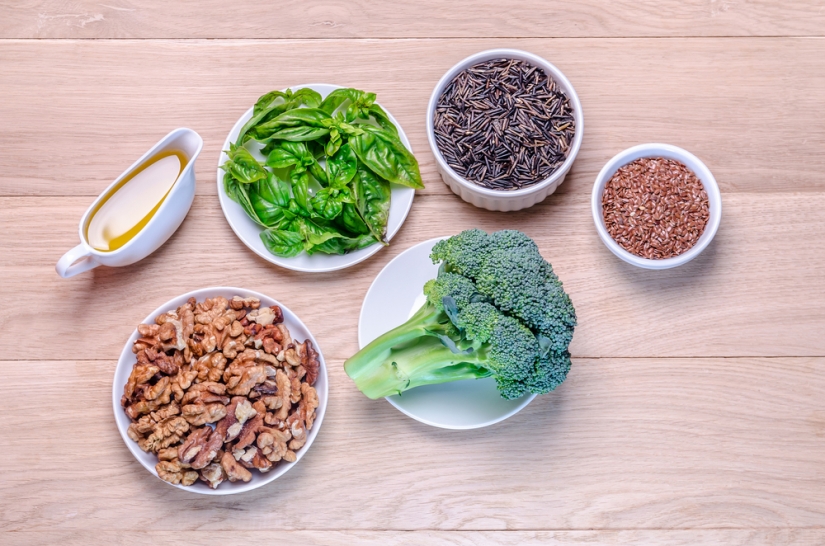Cruelty Free Beauty
- 4 signs you have low iron levels
- Zero Waste Beauty: Adopt a green routine with these sustainable products
- This eco-friendly beauty box is packed with refillable multi-taskers
- “I find myself using it even when I don’t need to!”
- Arctic-inspired natural skincare brand launches in the UK
- Green People launches beauty balm packaged in 100% biodegradable pot
- Lush launches same-day delivery service for its iconic handmade cosmetics
- “This cruelty-free tanning water gave me the confidence boost I needed”
- rho launches sustainable loungewear that gives back
- Rose & Caramel Raises Awareness For Women’s Self-Esteem & Mental Health With ‘I TAN FOR ME’ Campaign
- Couple launches entirely plant-based and refillable deodorant on Kickstarter
- View all
Eco Living
- Simple Hacks to Cut Your Food Waste with Gino D’Acampo
- Five Easy Ways to Reduce Food Waste
- Eat these foods to boost your mood
- Upgrade Your Cheese Toastie
- Have a healthy Christmas with these festive food swaps
- Omega-3 Health Benefits
- 5 minutes with Max La Manna
- A nutritionist’s guide to eating for healthy joints
- Easy ways to achieve your health goals
- Discover the benefits of raisins on a vegetarian diet
- Improve your gut health with California Raisins
- View all
Vegan Recipes
- Quorn Vegan Hot & Spicy Burger with Pink Slaw
- Tomato and Pumpkin Soup
- Pea and elderflower cocktail
- Matcha Coconut Ice Cream
- Vegan Lemon Bars
- Mango Salad with Thai Dressing
- Garden Gimlet
- Tofu & Green Beans Teriyaki
- Cornflakes Bombay
- Rainbow Pickle
- Soba noodles with kale and collards
- View all
Popular recipes
- Spinach and ricotta quiche vegetarian recipe
- Cheats mushroom and spinach lasagne vegetarian recipe
- Lentil bolognese vegetarian recipe
- Creamy mushroom stroganoff vegetarian recipe
- Malaysian Rendang curry vegetarian recipe
- Feta, Butternut Squash, Caramelised Onion and Cashew Nut Wellingtons
News
- This inclusive vegan underwear is made from seaweed
- Boost your veggie meals with this new umami sauce
- Children’s charity to spread smiles with virtual tea party
- Pukka is using your tea purchases to plant trees
- Pukka launches vegan pies to enjoy at home
- Lewis Hamilton Launches Plant-Based Burger Chain
- Big Butterfly Count calls on public to help with conservation efforts
- Oatly is Giving Away Free Tea and Coffee Across the UK
- Veggie Pret launches vegan bakery counter
- THE INTERNATIONAL VEGAN FILM FESTIVAL GOES VIRTUAL
- Love Food Give Food campaign calls on UK foodies
- View all
Most of us have heard of the wellbeing benefits of essential fatty acids (EFAs). Specifically, omega-3 is associated brain and heart health, and it’s also thought to be particularly beneficial for women. As Lola Biggs, registered dietician and spokesperson for natural health brand Together Health, explains:
“Omega-3s are well-known for their heart health properties, but they can also offer more specific benefits for women including supporting cognitive function and a healthy pregnancy, soothing menstruation discomfort, and healthy hormone regulation.”
According to Lola, omega-3 fatty acids can support wellbeing in a number of ways, including:
What are omega-3 fatty acids exactly? “Omega-3s are a group of polyunsaturated fatty acids – alpha-linolenic acid (known as ALA), docosahexaenoci acid (DHA) and eicosapentaenoic acid (EPA) – that all play crucial roles in the body,” Lola explains. “As your body cannot produce them, you must get them from your diet or with supplement support.” That’s why they’re known as ‘essential fatty acids’.
- - Helping to ease anxiety and improve a low mood
- - Keeping skin soft and supple and reducing the appearance of fine lines and wrinkles
- - Supporting strong bone health, and can help prevent osteoporosis
- - Easing PMS, menstrual pain, cramps and abdominal discomfort
- - Helping to reduce night sweats and hot flushes associated with the menopause
- - Supporting a healthy pregnancy
- - Alleviating rheumatoid arthritis and lubricating the joints to minimise stiffness
Omega-3 for vegetarians and vegans
Thanks to certain types of fish and seafood being rich in omega-3, this fatty acid is sometimes referred to as fish oil. Lola tells us that fatty fish – such as salmon, sardines, tuna, mackerel and anchovies – as well as oysters are good sources of omega-3.
But there are plenty of other ways to get your good fats. If you don’t eat fish, there is a choice of plant-based omega-3 rich foods – Lola recommends the following:
- - Walnuts and Brazil nuts
- - Flaxseeds or flaxseed oil and chia seeds
- - Green veggies, such as spinach and broccoli
- - Avocados
- - Tofu
If you’re worried that you’re not getting adequate amounts in your diet, try a supplement. “The human body itself cannot product these essential fatty acids which is why we need to obtain these nutrients from our diet. For vegetarians or vegans or those who just don’t like fish or seafood, it can be a good idea to bolster omega-3 levels with a vegan friendly supplement like the Together Health Omega 3,” says Lola.
“Fish free and without any aftertaste, these one a day soft gel capsules are made up of pure plant-based algae, DHA, and EPA. Ingredients are sustainably grown and sourced in a completely contamination-free environment and come in plastic free packaging.”
More from Vegetarian blog

October is National Mushroom Month and to celebrate, we've rounded up our favourite dishes that use our favourite fun guys...

Try this new vegan food company today...

Shallots are the annoying (and fiddly) little brother of onions, and their cumbersome nature often gets them left out of recipes. But shallots have an unrivalled, delicate flavour that should be savoured, so we found the best tips to make preparing the little beggars that little bit easier.

What do the professionals do differently?We caught up with some of our favourite chefs to find out their tips for culinary success every time






